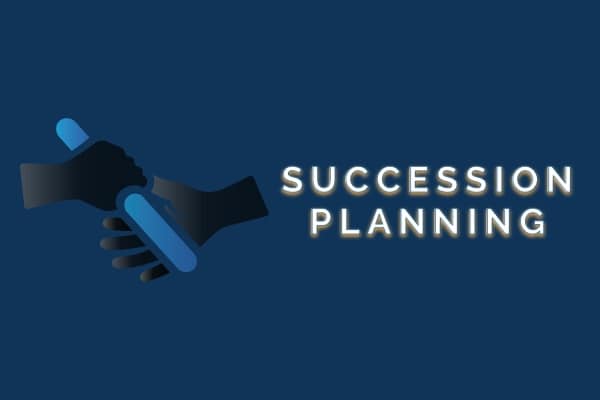Business Succession Planning
According to the National Association of Corporate Directors, less than 1 in 4 (i.e. less than 25%) of private company boards say that they have a formal business succession plan in place. In the case of family-owned businesses, only 30% survive into the second generation, 12% survive into the third generation and only 3% survive into and after the fourth generation.
What is Business Succession Planning?
So what’s business succession planning? Business succession planning is the art and science of planning ahead specifically to ensure that a precious private (usually small closely held business) enterprise not only continues beyond the present owners’ disability, retirement and death but thrives after any of these major events. Like estate planning, a thoughtful and well executed plan is a multi-disciplinary process that results in the strategic and orderly transition of management and ownership.
Ready to discuss
Business Succession Planning

Below are 10 benefits of solid thoughtful and effective business succession planning:
- achieve the owners’ medium and long-term estate and business goals
- increase the likelihood of fulfilling the owners’ personal vision of the business
- maximize the likelihood of preserving the company’s core values and culture
- maximize the tax-effectiveness of transferring ownership of the business so more goes to your family than the government
- address the company’s financial needs to transition properly
- navigate the shareholder’s financial needs to transition properly
- solidify the managerial structure, including identifying succeeding management teams and compensation of such teams
- ensure survival and growth of the business or its assets — under the current structure and after sale or restructuring
- preserve harmony when the business is family owned by, including ensuring a fair balance is achieved between family inheritance and involvement in the business, which minimizes conflict later
- retain control of the process instead of having someone else make decisions
3 Main Components of Business Succession Planning:
- Family
- Shareholder
- Business
Who should engage in succession planning?
If you’re a business owner and the above benefits appeal to you, then you should seriously consider engaging in business succession planning. Said differently, if you DON’T want your business sold in a fire sale (for below liquidation value) upon your disability or death, or if you DO want your business to transition beyond your stewardship so as to ensure a nice annuity for your retirement, then you NEED to engage in this type of planning. Successful business succession planning will NOT happen automatically on its own.
What steps have to be taken to successfully execute a succession plan?
- The first step of effective business succession planning is to decide that it’s important to you.
- The second step is to hire professionals who can guide you through a thoughtful process to work through the many dimensions of planning. That includes business planning and estate planning. It involves minimizing taxes and strategically structuring management and operations to transition, while minimizing disruption to the business operations and leadership upon the occurrence of any life-event that would otherwise shock the business.
- The third step is to get started building some momentum to get it done.
Like all planning, successful business succession planning is a process and takes time. Get started today before it’s too late for your business. We’d be happy to assist. Give us a call today to take the first big step forward.